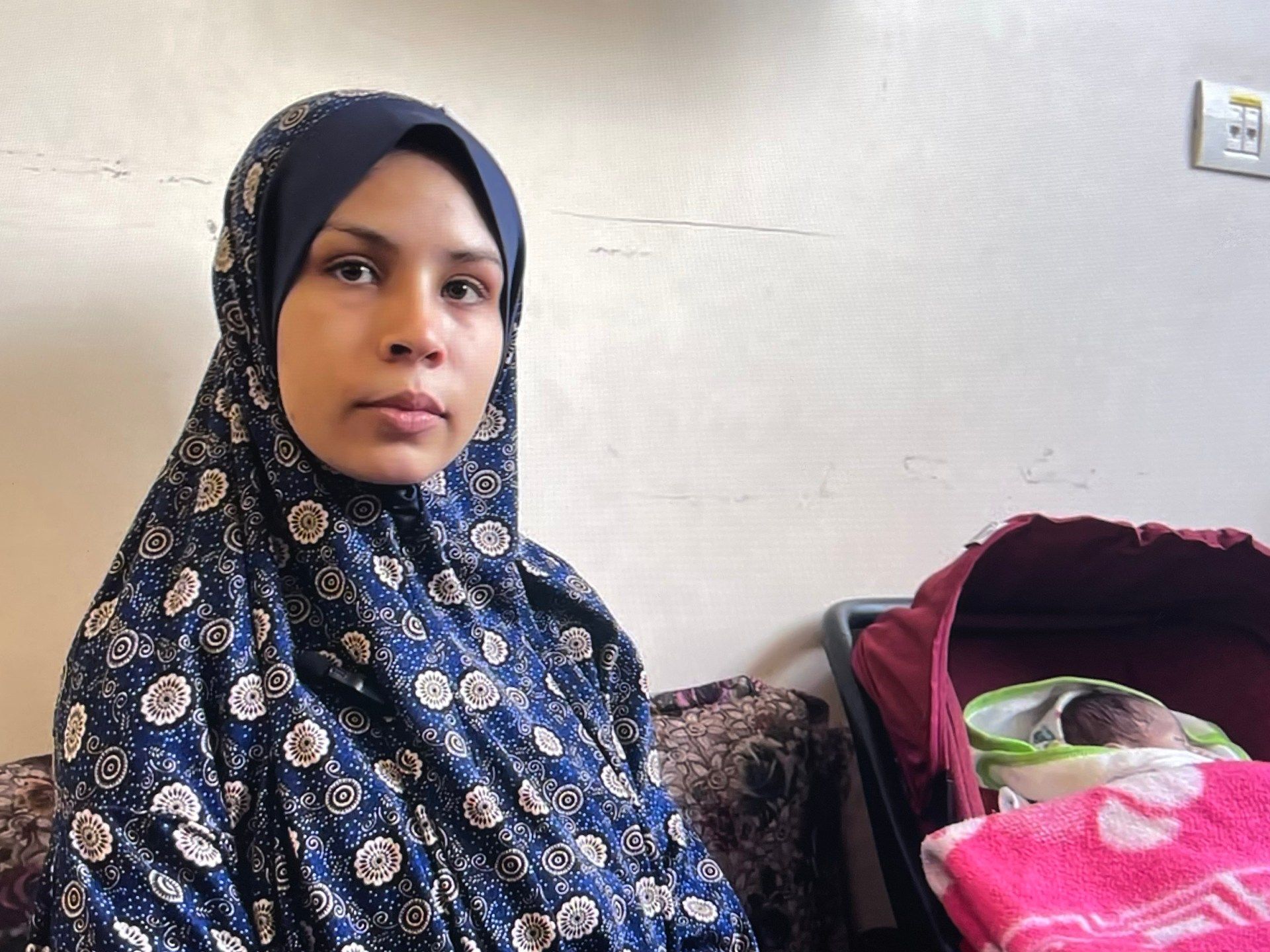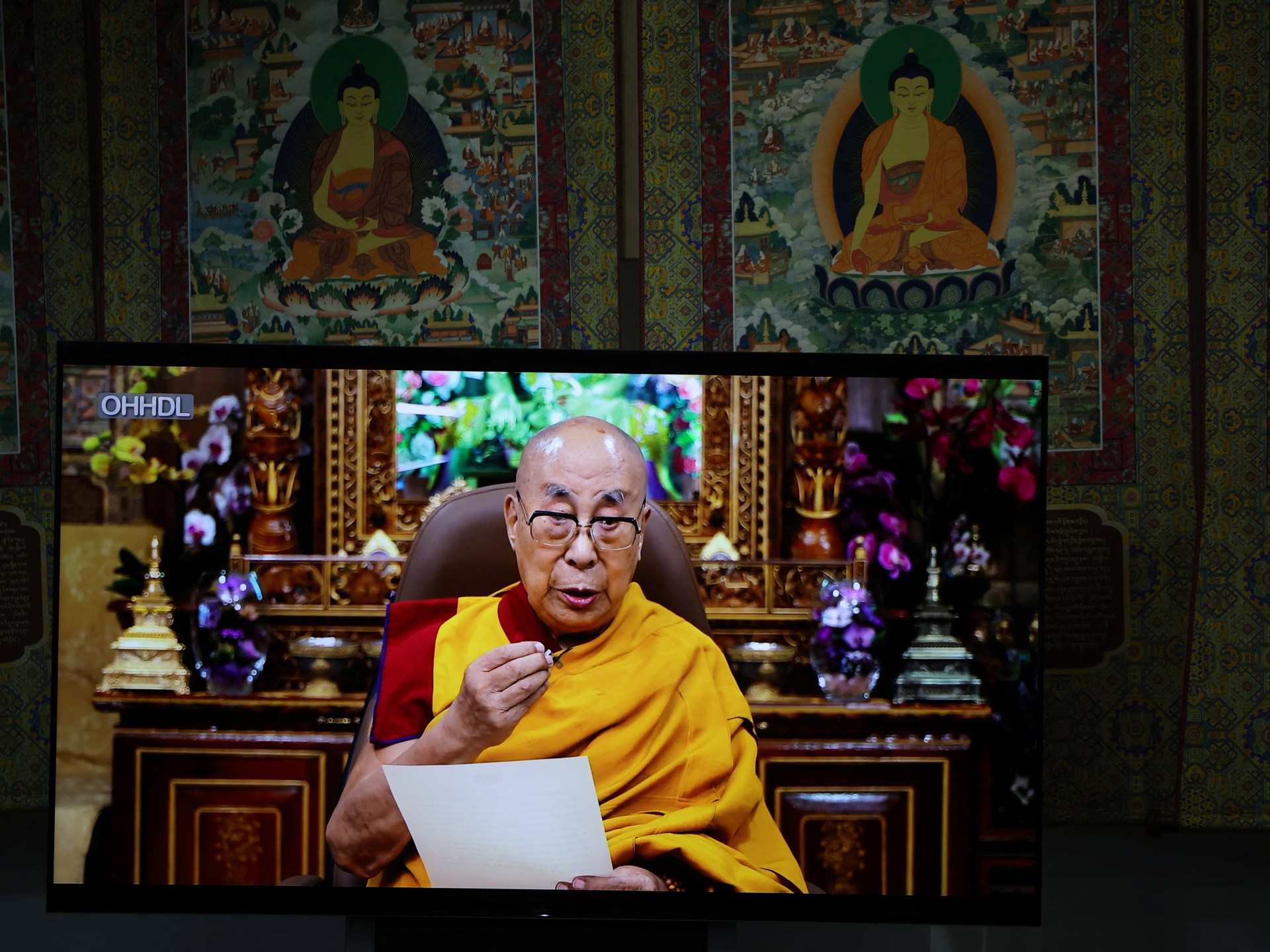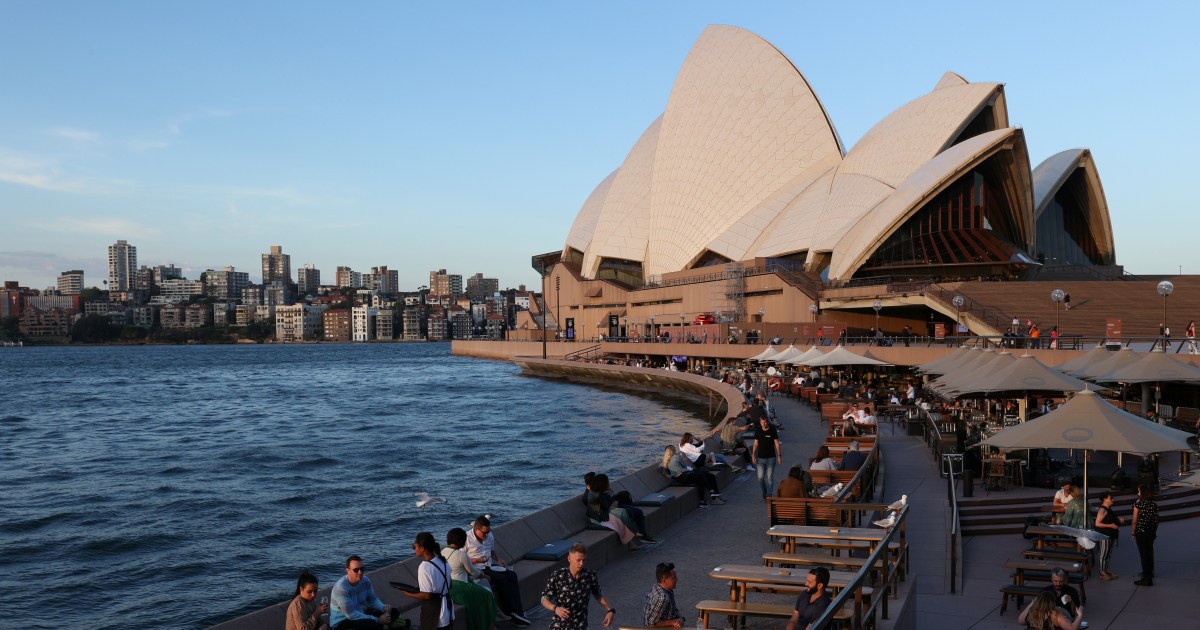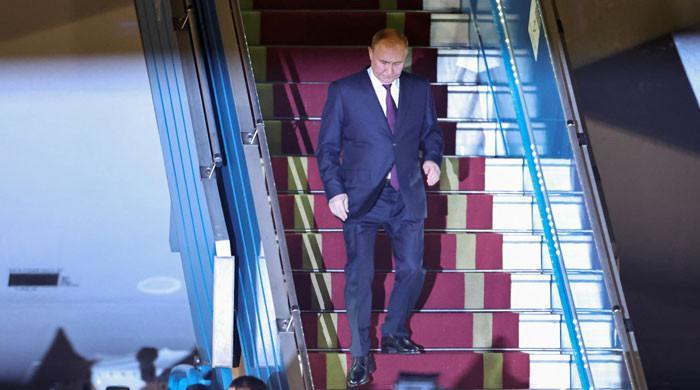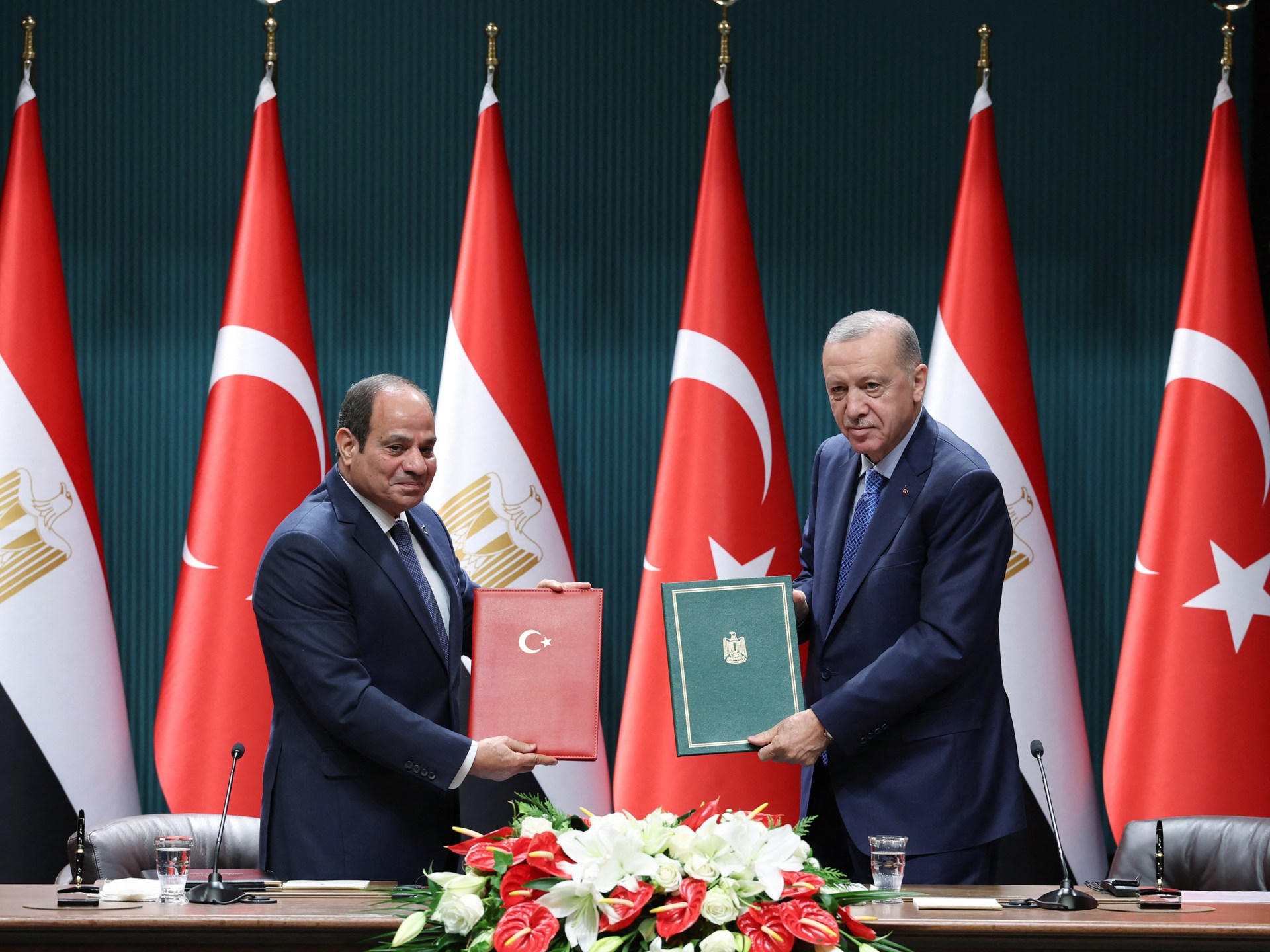Jabalia, Gaza Strip – In Jabalia, the joy of welcoming a newborn is tarnished, to say the least.
Clouded by the pain of displacement, by mothers having to give birth while fighter jets fly overhead, and by the uncertainty about what kind of future these babies will have.
Al Jazeera spoke to three women refugees at a United Nations school in Jabalia, northern Gaza, about their pregnancies and births, the losses they have suffered and whether they can feel joy at the arrival of their babies.
governess
Aya Deeb sits in the corner of a room in a school run by the United Nations Relief and Works Agency for Palestine Refugees (UNRWA). She speaks softly as her baby, Yara, sleeps next to her. The area around her is clean and tidy, and Yara is well cared for, tenderly covered with a pink blanket in the repurposed car seat she sleeps in.
Aya adjusts her blue printed Isdal robe and tells Al Jazeera that she feared she would lose Yara before she was born on Christmas Day.
In the weeks before the birth, Aya – long displaced from her home in Bir an-Naaja, in the northern Gaza Strip – had been moving from one precarious shelter to another, trying to escape Israeli bombs.
“In the early days of the conflict, we moved to my husband's uncle's house in Zawayda for security reasons. But then they attacked the house next door and my husband died in that attack,” he says.
After that, the pregnant woman took her young son, Mohamed. She returned north to stay with her family and continued moving from place to place until she and her parents ended up in school with thousands of other displaced people.
“I was very depressed during those last months of my pregnancy. There are so many things that a pregnant woman needs in her last trimester, but there was not enough food or drinking water,” she says, her face exhausted as she suppresses emotion.
“But the worst was the pain for my husband and not having him with me during childbirth.”
Aya's labor began on Christmas Eve and intensified throughout the night until her parents took her to the shelter clinic at 2 a.m. and ran around trying to find a midwife to help her with the birth.
Yara arrived shortly after, around five in the morning, Aya estimates, born on the clinic floor, behind a sheet spread in a corner of the room, the only privacy the clinic staff could offer her.
“I was in labor and all I could hear was the war planes roaring over me and the bombing. There was fear everywhere,” says Aya.
Yara did not obtain a birth certificate and did not receive any vaccinations. Her mother has not received medical attention either.
When asked what she wishes for her daughter, Aya responds: “A long life, lived in peace and without war. “They see a lot from such a young age.”
Aya is one of thousands of women in Gaza forced to give birth and care for their newborns during Israel's war in retaliation for the Hamas attacks on October 7.
The war has devastated Gaza's health system at a time when 180 babies are born every day, according to UN figures. From October 7 to January 5, the World Health Organization documented 304 Israeli attacks on health facilities in Gaza, which also killed more than 300 medical staff.
Severe shortages of doctors and midwives, coupled with Israel's siege of Gaza, threaten the lives of countless pregnant women and babies.
Raeda
Raeda al-Masry also wears an isdal, the ubiquitous garment worn by Gazan women to preserve their privacy.
She sits cross-legged on the floor of a classroom where she has taken shelter, holding her baby in a burping position and patting her bottom as she speaks animatedly to Al Jazeera.
Raeda is from Beit Hanoon and was displaced to Jabalia in the early days of the war.
“The block we took shelter in was bombed and the rescuers pulled me, my eldest son and I, who is 14 months old, out from under the rubble,” he says, explaining how they came to move to the school.
“Moath was born right here in the classroom about two months ago. When my labor started, we called an ambulance or something, but there were no resources. Nobody came to help.
“My God, it was a very difficult birth. There is nothing here that can help during a birth. He didn't even have clothes. “People had to dig around to find something to put Moath on.”
While Raeda managed to reach Kamal Adwan Hospital after Moath's birth to conduct checks for both, there were no vaccines available. Still unvaccinated.
“They told me there were no vaccines,… but look where we are. The baby is here at school, where all kinds of diseases are spreading. At this moment, something happens to his chest. She has trouble breathing, but there is nothing she can do.
“I also don't eat enough to be able to breastfeed him. Some people helped me by bringing me a formula.
“My wish for my son is that he lives, that he has security, that he has food, even diapers. I don't want him to grow up in misery.”
Um Raed
Um Raed also sits holding her baby, wrapped in a furry blanket and sleeping soundly, perhaps soothed by the sound of her mother's voice and her rocking movements as she holds him.
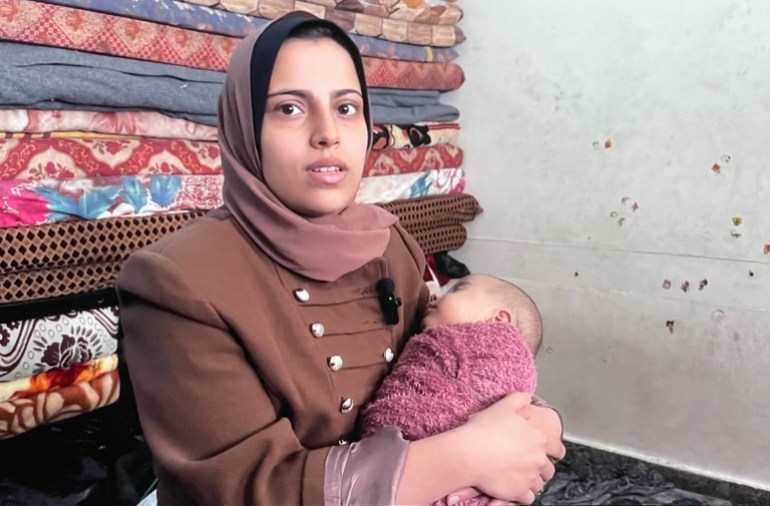
He has been sick often since birth, Um Raed says, her eyes wide and serious, the frustration of not being able to do more for her son evident on her face.
“I came to term here in the school shelter,” she says, “but my labor did not begin, probably because of the fear I was experiencing.
“So I walked from here to Kamal Adwan Hospital to get checked every day. I did that for three days and couldn't understand why my labor wouldn't start.”
Like thousands of other mothers in Gaza, when she went into labor, she had to give birth in rudimentary and unsanitary conditions, without safety measures, simply because Gaza's health system had run out of everything.
“Since I was born, I don't know if I should focus on my contractions or the sound of fighter jets above me. Should I be worried about my baby or should I be afraid of whatever attack is happening at that moment?
“You know, for such a small baby, he has learned to recognize the sounds of shelling. Every time there is a bombing here, she is startled and scared. “I don't think babies that young should recognize danger this way.”
On October 9, Israel tightened its siege on Gaza, denying food, water and medicine to its people, including a million children, about a third of whom are under five years old.
Newborns are the most vulnerable because their mothers often do not get enough calories to breastfeed them and baby formula is in short supply.
When asked what she wants for her baby, Um Raed answers “vaccines.”
In the long term, she says, she wants what any mother would want for her child: for Raed to grow up in a healthy environment, in peace and without suffering misery or learning about war at such a young age.
However, the three mothers agree: this is the reality of the war in which thousands of babies are being born, with no end in sight.
As much as they want the best for their babies, they also fear what might happen to them as Israel continues its attack on Gaza.

